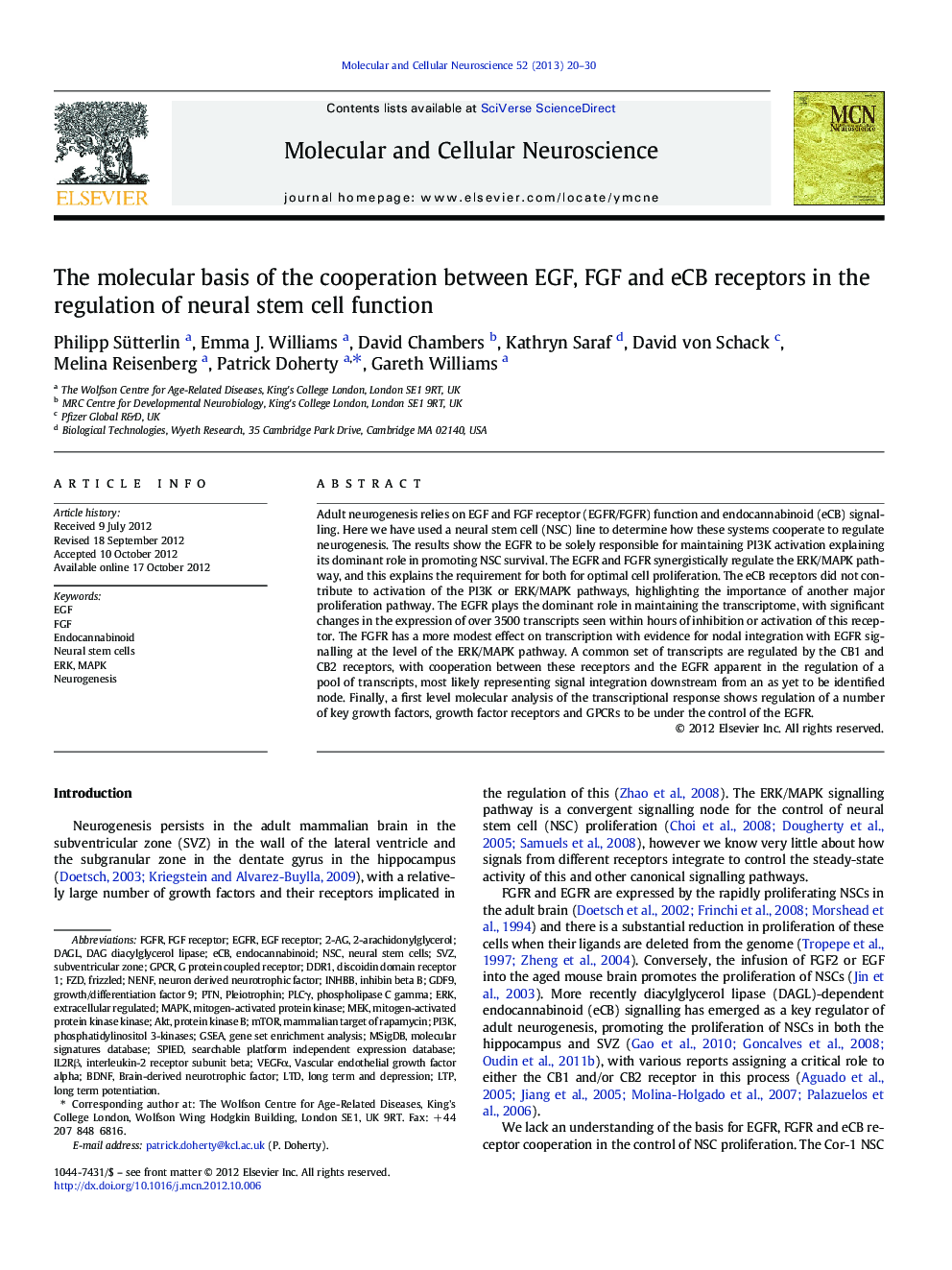| Article ID | Journal | Published Year | Pages | File Type |
|---|---|---|---|---|
| 2198567 | Molecular and Cellular Neuroscience | 2013 | 11 Pages |
Adult neurogenesis relies on EGF and FGF receptor (EGFR/FGFR) function and endocannabinoid (eCB) signalling. Here we have used a neural stem cell (NSC) line to determine how these systems cooperate to regulate neurogenesis. The results show the EGFR to be solely responsible for maintaining PI3K activation explaining its dominant role in promoting NSC survival. The EGFR and FGFR synergistically regulate the ERK/MAPK pathway, and this explains the requirement for both for optimal cell proliferation. The eCB receptors did not contribute to activation of the PI3K or ERK/MAPK pathways, highlighting the importance of another major proliferation pathway. The EGFR plays the dominant role in maintaining the transcriptome, with significant changes in the expression of over 3500 transcripts seen within hours of inhibition or activation of this receptor. The FGFR has a more modest effect on transcription with evidence for nodal integration with EGFR signalling at the level of the ERK/MAPK pathway. A common set of transcripts are regulated by the CB1 and CB2 receptors, with cooperation between these receptors and the EGFR apparent in the regulation of a pool of transcripts, most likely representing signal integration downstream from an as yet to be identified node. Finally, a first level molecular analysis of the transcriptional response shows regulation of a number of key growth factors, growth factor receptors and GPCRs to be under the control of the EGFR.
